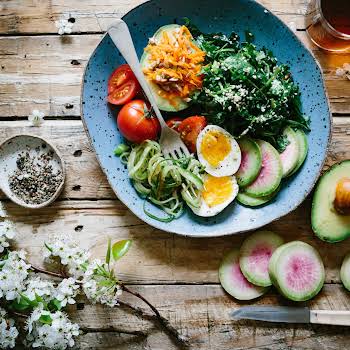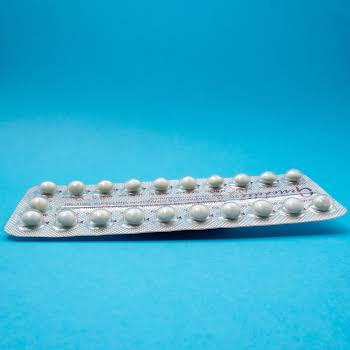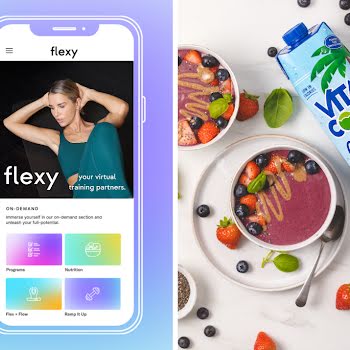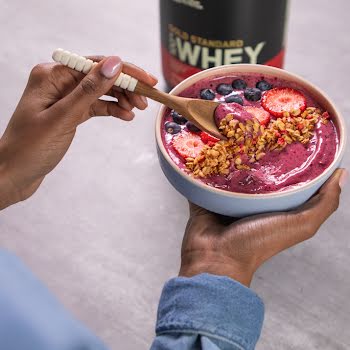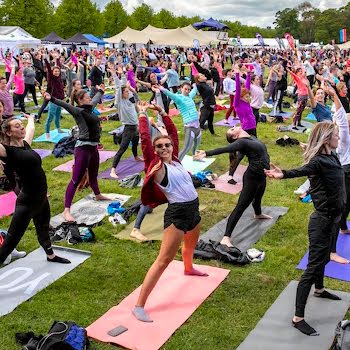
Find yourself reaching for the chocolate and crisps in the days leading up to your period? Here's why and how to deal with the cravings.
Shane Walsh is a personal trainer and qualified nutritionist who specialises in female weight loss; he’s worked with hundreds of women, not only to help them reach their goals but also to educate and understand their bodies better. In the process, he has helped women of all ages deal with hormonal activity and its effect on our behavioural patterns.
So, when it comes to these monthly period cravings, what’s actually going on? “The biggest thing to realise,” says Shane, “is that every woman is different and if susceptible to cravings, these can happen at different times in the menstrual cycle… So it’s really important to know what’s what. Apps like Clu and Flo are handy to understand your body – when you can push things, and when to cut yourself some slack.
“But it’s not in your mind. Period cravings do happen, and in most cases, they usually hit in the five or so days when you have your period or the week before. What’s actually going on is a move of hormones in the body, the pituitary gland up-regulates and this, in turn, can affect sleep quality, energy levels and hydration, all of which affect appetite. And when we’re tired, we crave the simple things, foods that are easy to convert to energy; and hence the urge for carby, sweet options. Some women may crave more salty or savoury things around this time too.”
What to eat
“Carbs aren’t bad, there’s no food that is ‘bad’ as foods don’t have a moral compass, some are just less nutritious than others. So by all means, have some chocolate; but I’d suggest combining it with some more nutritious options that include good-quality protein, fruit and vegetables. For example, dark chocolate has magnesium, which is great for soothing PMS so a really handy snack would be two squares of dark chocolate with Greek yoghurt, berries, Chia seeds, ground flaxseed and some honey.
“In order to counteract PMS and the associated demands on the body, women can eat a little more around their period. For those counting calories, I suggest adding about 200 calories per day for the 1-2 weeks around your period. Incorporate more protein to keep you feeling fuller for longer; fruit hits the brain to satisfy those sweet cravings and more fibre, from fruit, vegetables and unrefined carbs like oats, is really helpful to metabolise and help with digestion and renew the oestrogen in your body.
“Upping water intake is important to tackle bloating, which is basically trapped air in the stomach. Drinking more water will push this down and also get rid of old oestrogen. Women often get more constipated on the week of their period, so increase fibre and water. Put bluntly, you need to poo to rid your body of used hormones because if you don’t do that, you’re going to feel awful.”
 Shane Walsh is a personal trainer and qualified nutritionist
Shane Walsh is a personal trainer and qualified nutritionist
What to do
“If you’re having lots of cravings, look at sleep and stress. PMS is like a tree, you have to look at the root cause and these are key culprits. Our bodies aren’t made to take on the amount of stress our modern lives involve; looking at social media alone is not going to help PMS, but doing so late at night even less so. Getting a solid seven to nine hours of sleep per night will have a massive impact on how you feel because a lack of sleep means your body will fail to regulate appetite hormones, so hunger will increase and you’ll start to reach for less nutritious food, and the circle continues.
“If you’re someone who trains a lot or likes to work out, your performance will vary through your monthly cycle. In general, train hard in the Follicular phase (first two weeks), this is when you’ll hit PBs as testosterone is usually higher. In the second two weeks, during the Luteal phase, recovery takes longer, so reduce intensity and tick along. Then the week of your period scale back and do what you can.
“Finally, on the subject of supplementation, I suggest getting your nutrients through food, but there are a few helpers for those with particular issues. Agnus Castus (also called Chasteberry), is a herbal remedy that can help with PMS and cravings, although not to be taken by females on depression medication, the pill or if you could be pregnant. Magnesium, as previously mentioned, is good, and for those with PCOS (1 in 10 women) and amenorrhea, Inositol can help regulate insulin/blood sugar. Take 2-4g per day for 4-6 months, along with a good diet and training regime.”
More information on this, plus other topics on female health, training and fat loss can be found on Shane Walsh’s regular podcasts. Follow @shanewalshfitness. Collage via Unsplash












